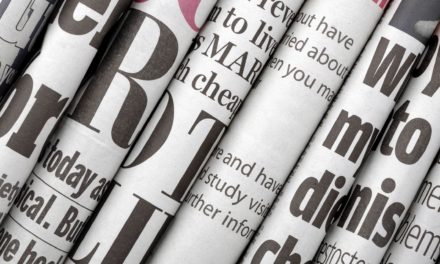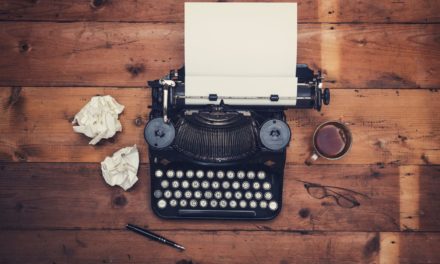The first ethical norm in writing an autobiography is truth. History is replete with memoirists and autobiographers whose life histories are more wannabe than actually were. There are three separate genres. All tell or retell life stories, but there are important differences. Autobiographies are written about and by the author. Biographies are third-person narratives, where the author tells someone else’s story. Unlike autobiographies, the subject of the story can be living or dead when writing biographies. And memoirs differ in both focus and the narrative arch. A memoir specifically retells particular incidents or experiences of an individual and attempts to highlight a point of view. Conversely, biographies present chronological events from the life of a particular person without specifically focusing on a particular experience.
The ethical challenge is not mixing one genre with the other because readers look for the highlighted experience in memoir and history in biography. Additionally, unlike in memoirs where a particular emphasis is laid on individual emotions, a biography is more general.
One of the most famous autobiographies in world history is Long Walk to Freedom by Nelson Mandela. It is not a classic autobiography because the book is “credited” to South African President Nelson Mandela. It was ghostwritten by Richard Stengel and first published in 1994 by Little Brown & Co. The book profiles his early life, coming of age, education, and twenty-seven years spent in prison. Mandela is one of the greatest moral and political leaders of his time: an international hero whose lifelong dedication to the fight against racial oppression in South Africa won him the Nobel Peace Prize and the presidency of his country.[1]
There are many wonderful autobiographies and a handful of fakes. My list for this blog is autobiographies that teach ethics as they reveal the author’s life.
The Collected Autobiographies of Maya Angelou by Maya Angelou are considered literary treasures all over the world. Her, “I Know Why the Caged Bird Sings” is shelved as autobiography and as memoir. It focuses on her childhood and became the first of seven books chronicling the author’s remarkable life and insight. Together, they form a complete autobiography.[2]
The Autobiography of Benjamin Franklin by Benjamin Franklin was written between 1771 to 1790 and published in the early 1900s. It is the Founding Father‘s early life and unique adulthood. One of the book’s most notable sections describes Franklin’s attempts to achieve “moral perfection” through the achievement of 13 virtues, including temperance, silence, and order. Although the book was written over 200 years ago, Franklin’s suggestions for bettering one’s life remain as current and essential to humankind as ever.[3]
The Narrative of the Life of Frederick Douglass, an American Slave by Frederick Douglass is widely considered one of the best autobiographies ever written. It’s a vivid retelling of Douglass’ childhood and the torturous abuse he suffered at the hands of numerous slave owners, as well as his harrowing escape to freedom, after which he became a respected orator and prominent abolitionist. As we grapple with the legacy of slavery in America, reading Douglass’ firsthand experience is a painful and necessary step toward understanding the harm of the past and how it has shaped the present.[4]
The Diary of a Young Girl by Anne Frank is one of the most famous books about the Holocaust. It’s her diary. She kept it for the two years she was in hiding with her family during the Nazi occupation of the Netherlands. Readers all over the world phrase the book because it shares intimate details about her family, crushes on boys, her religion, and the heartbreaking effects of WWII. “In light of her tragic death in a Nazi concentration camp at the age of 15, what makes this book so remarkable is how Anne was able to remain hopeful about the goodness of humanity, despite the suffering her family endured. Almost not published, The Diary of a Young Girl is now a must-read for students and adults alike.”[5]
I Am Malala: The Girl Who Stood Up for Education and was Shot by the Taliban is the life story by Malala Yousafzai. “She is one of those rare figures in society recognized immediately by first name. She has become a symbol of strength, courage, equity in education, and the promise of her young generation. Her activism began with writing, so it is fitting that her story continues with this autobiography, telling her story up until 2013.”[6]
The truth, the whole truth, and nothing but the truth is rare in the book world. Telling the unvarnished truth is nigh on impossible because of the fragility of memory and the perspective of the writer. One person’s truth is often someone else’s lie.
While philosophy and psychology differ in how truth is described, both disciplines recognize that truth is relative to personal and social goals. Philosophers invoke something called the correspondence theory of truth. “A belief is true if it describes the world accurately. Alternative theories include the coherence theory, according to which the truth of a belief is just how well it fits with other beliefs and the social construction view that truth is relative to what people want.”[7]
Here are four stunning examples of literary fraud disguised as autobiographies.
Telling the unvarnished truth in an autobiography or memoir is no small feat. The urge to slip in embellishments or heighten a dramatic arc through exaggeration can be hard to resist, especially when aiming for a compelling life story. But the past few decades have seen an increase in a different category of memoir—the hoax, where the truth, if it’s even present, is unimportant. Here are four stunning examples of literary fraud.
- A Million Little Pieces by James Frey. According to the Smithsonian Magazine, “Mr. Frey fabricated large parts of his so-called memoir, A Million Little Pieces, a gritty account of his struggles with alcohol and drug addiction. Though to be fair Frey had presented the book initially as a novel, publishers only developed interest in it after it was described as a true story, looking to meet the reading public’s hunger for hard-luck memoirs. The 2003 memoir became a huge bestseller after Oprah Winfrey selected it for her TV show book club in 2005, but quickly turned into a major literary scandal the next year. In 2008, Frey made a literary comeback with his best-selling novel, Bright Shiny Morning.”[8]
- Love and Consequences by Margaret B. Jones. “This 2008 account about a part American Indian foster child immersed in gang life in South Central Los Angeles managed to reel in both its publisher and glowing reviews before it was discovered that none of it was true. In reality, the author Margaret Seltzer, who had used the pseudonym Margaret B. Jones, was white, grew up with her biological family in Sherman Oaks, an affluent Los Angeles neighborhood, and had attended private school.”[9]
- Misha: A Memoire of the Holocaust Years by Misha Defonseca. Belgian-born Misha Defonseca described how she set out alone, at age 7, to find her Jewish parents who had been deported by the Nazis. Walking 1,900 miles across Europe, over the course of five years, she spent time in the Warsaw Ghetto, lived with wolves, and killed a German soldier in self-defense. The book had limited success in the United States but became a best-seller overseas and was translated into 18 languages and made into a French film. In 2008, eleven years after the book’s publication, an American genealogist unearthed Defonseca’ s baptismal certificate, indicating she was Catholic, as well as evidence that she had attended school in Brussels during the time she was supposedly on her trek. The Nazis had executed her parents who were members of the Belgian resistance. Defonseca confessed in a statement that “Ever since I can remember, I felt Jewish…. There are times when I find it difficult to differentiate between reality and my inner world.”[10]
- The Autobiography of Howard Hughes by Clifford Irving. “Writer Clifford Irving had already received a $765,000 advance and had delivered his manuscript of The Autobiography of Howard Hughes to publisher McGraw-Hill by the time the billionaire industrialist finally came forth to sue the publisher, saying that he had never met with Irving or given his approval for the project. Irving had gambled badly that the reclusive Hughes would never surface to denounce the hoax. By forging letters and setting up phony interviews, Irving had convinced the publisher and several key experts that the autobiography was authentic. He’d also managed to obtain a copy of a manuscript about Hugh’s right-hand man, which gave Irving’s work its remarkable detail.”
Forbes Magazine published a widely read article in 2015 indirectly indicating the start of an era of utter falsity in public political discourse. It posed the question whether certain people could tell the truth for an entire week. How much truth do you tell? The whole truth? The partial truth? The preferred truth? To ferret out truth from falsity, Forbes presented five ways to tell the truth: (1) Tell the truth to yourself about yourself. (2) Tell the truth to yourself about another. (3) Tell the truth about yourself to another. (4) Tell the truth about another to another. (5) Tell the truth to everyone about everything.[11]
The central point in the Forbes article was truth telling requires courage. “It takes guts to speak your truth. And to have this degree of courage requires commitment—it has to really matter to you to follow through on truth telling. And to have this level of commitment requires love—I find that when a leader, a parent, a friend, a human being loves enough they’ll be committed, because love makes us courageous. Because love is the most powerful force in the Universe.”[12]
The Forbes article’s conclusion about love raises the question whether “love” is an ethical imperative or a moral consequence. Psychologists put it this way. “Love is valuable morally because it increases attachment between people, and this is of the utmost importance in maintaining social and personal relationships. The great importance of care and attachment in human affairs makes it understandable that we consider those who are unable to love as morally delinquent.”[13]
Writing an autobiography is a challenge at many levels; factually, historically, and emotionally. An autobiography often turns out to be a Rorschach test for the author. Words, their truth, and the consequence to readers tests personality characteristics and emotional functioning.
[1] https://www.hachettebookgroup.com/titles/nelson-mandela/long-walk-to-freedom/9780759521049/?lens=little-brown
[2] https://www.rd.com/list/best-autobiographies/
[3] https://www.amazon.com/Autobiography-Benjamin-Franklin/dp/1640320032
[4] https://www.rd.com/list/best-autobiographies/
[5] Ibid.
[6] Ibid.
[7] https://www.smithsonianmag.com/arts-culture/five-fake-memoirs-that-fooled-the-literary-world-77092955/
[8] Ibid.
[9] Ibid.
[10] Ibid.
[11] https://www.forbes.com/sites/christinecomaford/2015/10/24/can-you-tell-the-truth-for-an-entire-week-take-the-challenge-be-a-better-leader/
[12] Ibid.
[13] https://www.psychologytoday.com/us/blog/in-the-name-love/201004/are-love-and-sexual-desire-moral

I am an author and a part-time lawyer with a focus on ethics and professional discipline. I teach creative writing and ethics to law students at Arizona State University. Read my bio.
If you have an important story you want told, you can commission me to write it for you. Learn how.






 I am an author and a part-time lawyer with a focus on ethics and professional discipline. I teach creative writing and ethics to law students at Arizona State University.
I am an author and a part-time lawyer with a focus on ethics and professional discipline. I teach creative writing and ethics to law students at Arizona State University.  My latest novel is Hide & Be.
My latest novel is Hide & Be.  If you have an important story you want told, you can commission me to write it for you.
If you have an important story you want told, you can commission me to write it for you.